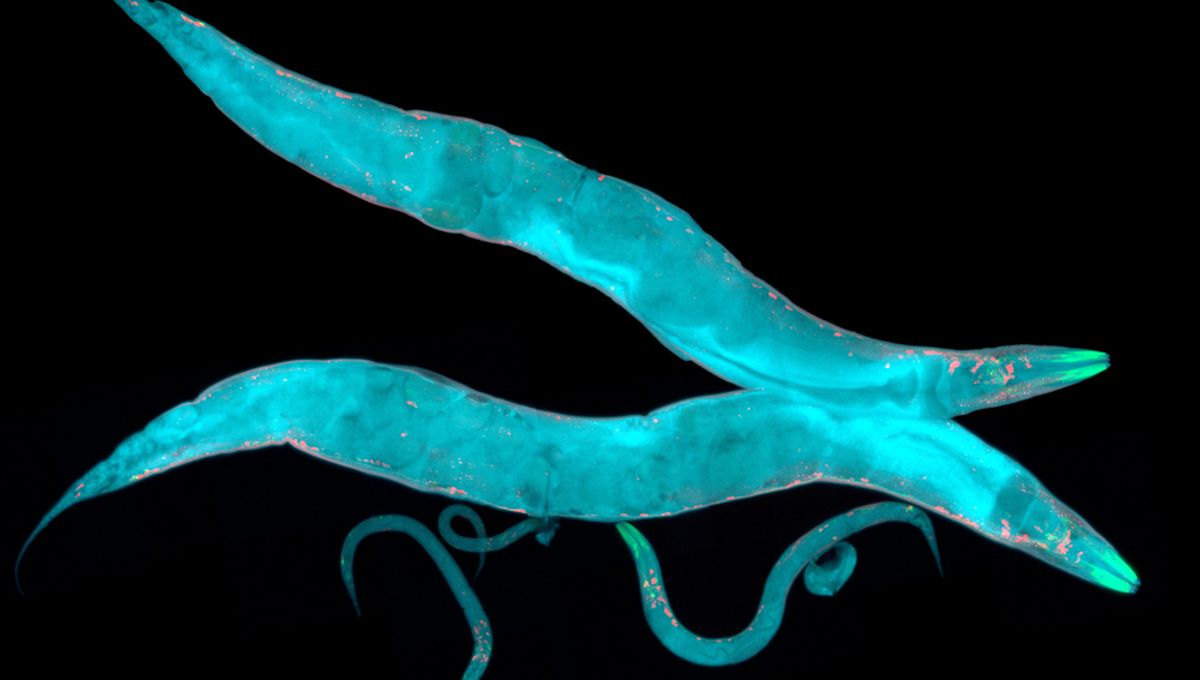
A new study has revealed that Caenorhabditis elegans, a roundworm commonly used in scientific research, could possibly possess primitive “emotions”.
Although humans have anthropomorphized animal emotions for a long time, the reality is that studying their emotions is quite a challenging feat. However, changes in an animal’s behavior, in response to a trigger, might be regulated by brain function resembling basic “emotions”.
Following research suggesting that C. elegans has roaming and sleeping behaviors, scientists from Nagoya City University and Mills College at Northeastern University set out to determine if the roundworms might have other behavioral states that could be regulated by emotions.
The study found that, when stimulated with an electric shock (a few seconds of alternating current), the worms started moving at an unusually high speed. This change in behavior continued for up to two minutes after the initial shock – a persistent behavioral response like this is caused by persistent neural activity, which behavioral neuroscientists believe is involved in emotion.
It was also discovered that the worms ignored their food, both during and after the shock. Normally, food is the priority for C. elegans, leading the researchers to conclude that the worms were capable of sensing the danger of the electric shock.
Out of a basic version of fear, they ignored food and prioritized running away to safety, like if you were running past McDonald’s because someone is chasing you with a cattle prod – unlikely, but fear-inducing nonetheless.
The persistence of these behaviors, and the fact that the response was stronger under stronger stimulus, is the crux of why the research team concluded worms could have emotions; research suggests that persistence, scalability, and valence (the emotional value associated with a stimulus) are three of the key features of animal emotions.
The findings of the study could give further insights into human emotions and behaviors, too. Researchers observed that genetically mutated worms unable to produce neuropeptides – the worm equivalent to hormones – continued running for much longer periods of time after the electric shock.
According to the study authors, this indicates that emotions could be controlled by genetic mechanisms. If this is the case, given that there are many human counterparts to the genes in C. elegans, it might open a new avenue of genetic research into human emotion and mood disorders.
The study is published in Genetics.
Source Link: Worms Might Have Basic “Emotions” In Response To Electric Shocks